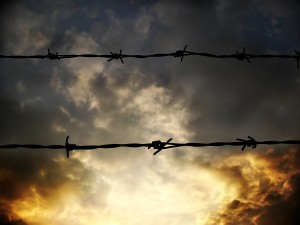ASYLUM SEEKERS Landmark inquiry calls for overhaul of system
ACUTE mental illness is widespread across Australia’s detention centres and “all reasonable steps” should be taken to limit detention to 90 days, a landmark parliamentary inquiry has found.
The government-chaired committee has proposed stripping Immigration Minister Chris Bowen of guardianship of unaccompanied children, saying his obligation to act in their best interests is in conflict with his responsibility for the mandatory detention system.
It also says refugees facing the p rospect of a lifetime in detention after being declared security threats by ASIO should be able to appeal to an independent body.
rospect of a lifetime in detention after being declared security threats by ASIO should be able to appeal to an independent body.
The most contentious recommendations of the majority report _ the biggest-ever parliamentary inquiry into Australia’s immigration detention network _ were supported by Labor and Green members of the committee and the independent MP, Rob Oakeshott, but not the Opposition.
The Coalition did, however, support a host of recommendations aimed at addressing “numerous shortcomings in service delivery” inside detention centres that placed detainees and staff at “serious risk”.
Veteran Labor MP Daryl Melham, who chaired the committee, said he was confident the 90- day limit on detention was achievable, adding that it would be possible to alleviate damage to asylum seekers and save the taxpayer hundreds of millions of dollars.
“While academics and psychologists tell us that mental health begins to erode after three months in detention, there are people with adverse security assessments in Australia’s immigration system who have been detained for well over two years,” he wrote in the introduction to the report.
Reasons for prolonged detention should be made public where people were held for periods longer than 90 days, the report said.
The deputy chair of the inquiry, Greens senator Sarah Hanson-Young, backed all the recommendations, describing them as practical steps that would “stop traumatising and retraumatising vulnerable people”.
But she went further, calling for a legislated time-limit _ preferably of 30 days _ before asylum seekers were released into the community, and for remote and isolated detention centres to be decommissioned. Her push was endorsed by refugee advocates.
“There’s a library of reports recommending time limits. We need action _ and we won’t get it without legislation,” said Pamela Curr, of Melbourne’s Asylum Seeker Resource Centre.
Mr Melham argued passionately for changing the ASIO Act to give refugees who receive adverse security assessment the same entitlement to appeal as Australian citizens.
“I’m not trying to jeopardise national security, but I do not accept the argument that there is not one person in the whole of Australia who can adequately review an assessment of ASIO when someone’s liberty is deprived,” he said. “I do not accept the fact that someone who is a non-citizen gets second-class rights when it comes to their liberty.”
There are 46 refugees currently in detention facilities because they were deemed security threats by ASIO. The report also urged the government to explore whether control orders used in the criminal justice system could be used to enable asylum seekers who are in indefinite detention or cannot be repatriated to live in the community.
Describing the situation in the detention network as “simply unsustainable”, the report has proposed a “proactive blueprint” for a new approach that it argues would be far less harmful and far more cost effective.
Last financial year the government spent more than $772 million on running detention facilities, compared with an estimated cost of $150 million to operate the community detention program this financial year.
In a dissenting report, Opposition MPs led by immigration spokesman, Scott Morrison, argued that the rolling crisis that overwhelmed the immigration detention network a year ago was not the product of a policy of mandatory detention, but the failure of a border protection policy.
“We remain committed to mandatory detention combined with a strong border protection policy,” Mr Morrison told reporters.
Mr Bowen said the government was considering the report and would provide a full response in due course, but argued that the government had already moved to improve the detention system and make it more sustainable.
“There are currently around 3600 people in detention facilities _ a reduction of more than 2500 people since March 2011,” he said.
As first appeared in The Age, Sat 31 Mar 2012

Mental health royal commission overwhelmed by response
February 15, 2019
State urged to examine dire housing need in mental health probe
January 31, 2019
Why this landmark inquiry into mental health will be different
January 30, 2019
Government Invests $1.45B into Community Mental Health
January 21, 2019
More go straight from psychiatric hospital into homelessness
January 17, 2019























